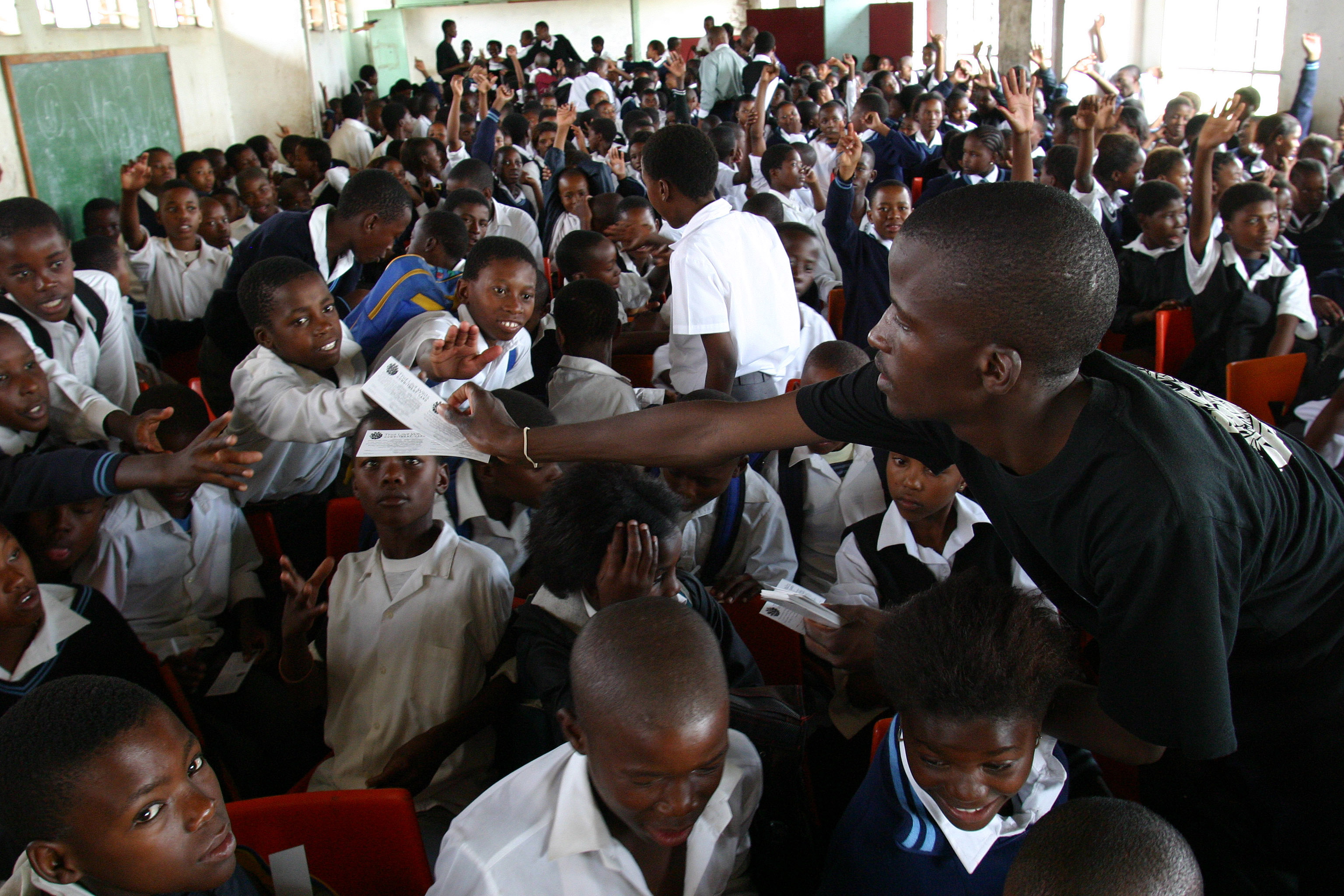
MMAMETLHAKE, South Africa (BP)–A scream escapes from the front row of the auditorium as middle schoolers frantically knock over chairs and try to escape the man dressed in all black and a scary mask.
Mr. AIDS has arrived!
He’s made his appearance in most of the children’s lives already. They watch their brothers, sisters, aunts, uncles, mothers and fathers suffer and die from AIDS. However, this is the first time they can actually ask Mr. AIDS questions.
One timid student asks if there’s a cure for AIDS.
“No!” hisses Mr. AIDS. “Once I come into your life … you die!”
The masked man is part of a True Love Waits presentation sponsored by the Mmametlhake Family Care-Centre in South Africa. The group of young adults presents skits, talks about HIV and answers questions as a way to promote awareness. In a country where condoms are the most common form of disease prevention, these volunteers preach abstinence.
Daniel Mahoai says that most of the volunteers give their time because they want to save lives.
“Most of our peer group is dying,” he says. “We want to show that as young people, it is possible to wait for sex. We can stand for the Lord and live a godly life while at the same time combating the HIV infection rate.”
United Nations UNAIDS reports estimate that one in five South Africans is HIV-positive. Most contract the disease before they are 25 and die by the time they are 35. More and more young people are contracting HIV every day. The Nelson Mandela Study estimates that 11.4 percent of all South Africans over the age of 2 were HIV-positive in 2002. Worldwide, around 2 million children under the age of 15 are living with HIV and more than 12 million children have been orphaned by AIDS.
Peter Letswalo says the volunteers present their abstinence message at middle schools, elementary schools, churches and community events. More than 5,788 have attended the TLW rallies. To date, more than 2,592 students and young adults have signed commitment cards. This team even sent 514 commitment cards for display at the Athens Olympics.
The volunteers are excited about how well the biblical message is being received in a variety of venues. However, their main emphasis is on middle school and high school students.
“There is such peer pressure to have sex — even as a middle schooler. Girls feel like they have to get pregnant out of wedlock just to prove to future husbands that they can have babies,” Letswalo says. “If we can reach them before they get backed into this corner and let them know they have a choice, then the program has succeeded.”
Often after the presentations, students stick around to talk to the young adults. This is the favorite time for most of the team members. This is when they really get to listen to the students’ problems and act as “big” brothers and sisters. Volunteer Evelyn Kgapela says when students come up to them after the program, they have the chance to talk more about God and His plan.
“Students always want to know if it is really and truly possible to wait to have sex,” Evelyn says. “We tell them that with God’s help — anything is possible!”
–30–
To learn more about Southern Baptist outreach and human needs ministries in Africa and how you can get involved, visit:
http://imb.org/cesa
http://www.gowestafrica.org
http://imb.org/giving
















